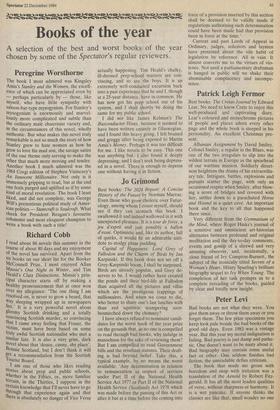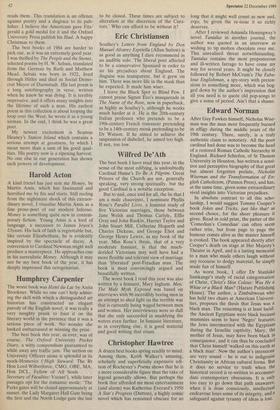Peter Levi
Bad books are not what they were. You give them away or throw them away or you forget them. The few prize specimens you keep look pale beside the bad books of the good old days. Even 1983 was a vintage year. But this year my moral indignation is failing. Bad poetry is just damp and pathe- tic. One doesn't want to be nasty about it. Bad biography may contain some useful fact or other. One seldom finishes bad fiction; the unreadable defies criticism.
The book that made me groan with boredom and snap with irritation was a translation of the Aeneid by Robert Fitz- gerald. It has all the most leaden qualities of verse, without sharpness or harmony. It is a wet pancake. If anyone thinks the classics are like that, small wonder no one reads them. This translation is an offence against poetry and a disgrace to its pub- lisher. I believe the Americans gave Fitz-' gerald a gold medal for it and the Oxford University Press publish his Iliad. A happy Christmas to them.
The best books of 1984 are harder to pick out, as it was an extremely good year. I was thrilled by The People and the Stones, selected poems by H. W. Sebais, translated from the German by Ruth and Matthew Mead. Sebais was born in 1922, lived through Hitler and died as Social Demo- crat Mayor of Darmstadt. His last poem is a long autobiography in verse, written when he knew he was dying. It is terribly impressive, and it offers many insights into the lifetime of such a man. His earliest poem in this collection is about looping the loop over the West; he wrote it as a young airman. In the end, I think he was a great poet.
My newest excitement is Seamus Heaney's Station Island which contains a serious attempt at greatness, by which I mean more than a sum of his good qual- ities. His poetry now is a ripening harvest. No one else in our generation has shown such powers of development.







































































 Previous page
Previous page